-
The security effectiveness of TSA’s expedited screening can be improved: GAO
In 2015, the Transportation Security Administration (TSA) screened or oversaw the screening of more than 708 million passengers at more than 450 U.S airports. In two recent reports, the GAO addresses the extent to which TSA (1) has taken steps to improve the security effectiveness of expedited screening, and (2) uses screening personnel (TSO) performance testing data to enhance TSO performance in screening for prohibited items.
-
-
Data contained in the black boxes should be stored in the cloud: Expert
Researcher in the field of networked electronic and radio systems say information stored in an aircraft’s flight data recorder (FDR) and cockpit data recorder (CDR) — the so-called black boxes — should be streamed to a safe cloud storage facility.
-
-
Airport executives from forty countries to visit Israel for security lessons
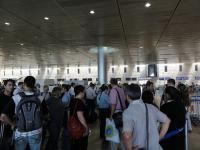
With concern rising after a string of terror attacks, airport representatives from forty countries will visit Israel’s Ben-Gurion International Airport next month to learn about Ben-Gurion’s security procedures. Ben-Gurion is one of the world’s safest airports — no flight departing Israel has ever been hijacked, and there has not been a terrorist attack at Ben-Gurion since 1972.
-
-
Study probes impact of terror on business travelers, managers
A joint study of terror’s impact on business travelers and business travel managers revealed surprising results, especially with regard to traveler fears and anxiety. Among other findings, the study found that 31 percent of business travelers worry that a reluctance to travel could hurt their career, and that 6 percent would not feel comfortable expressing their concerns to upper management.
-
-
Maritime vessels at risk of cyberattack because of outdated systems
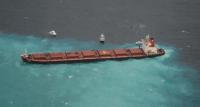
Maritime vessels are under significant threat of cyber-attack because many are carrying outdated software and were not designed with cyber security in mind, according to new research. But operators could easily mitigate against such dangers by updating security systems, improving ship design and providing better training for crews.
-
-
TSA’s head of security dismissed against backdrop of long waits at security lines
Kelley Hoggan, TSA’s head of security, dismissed after a contentious Hill hearing on long airport security lines. Travelers in Chicago’s O’Hare Airport complained of two-hour waits. Questions raised about $90,000 in bonuses and awards given to Hogan.
-
-
Is commercial aviation as safe and secure as we’re told?
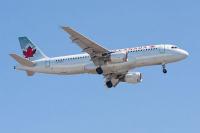
Commercial aviation is not quite as safe as we assume. The problem is that by limiting our measurement of security to fatal incidents, we narrow our appraisal of risk. Aviation from this perspective appears to be very secure. Crashes, after all, are rare events. However, if we take into account all the nonfatal incidents, which most people are not aware of, then the actual risk of accident in the airline industry is higher.
-
-
Search lead by Egypt's military finds plane wreckage north of Alexandria
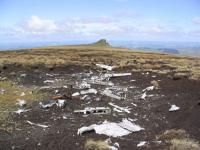
An Egypt-led search has uncovered “wreckage” and “personal belongings of passengers.” “Egyptian aircraft and navy vessels have found personal belongings of passengers and parts of the wreckage 290 kilometers (180 miles) north of Alexandria,” Egyptian army spokesman Mohammed Samir in a statement published on Facebook. Thursday’s even is but the latest in a troubling series of aviation crises in Egypt this past year.
-
-
Israel’s airport security model may not be suitable for European airports
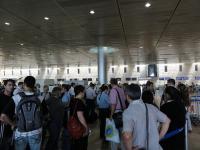
Israel has a justified reputation as a country offering tight aviation and airport security. Thus, although Israel has been the targets of various forms of terrorism for decades, no one has been killed or wounded inside Ben Gurion airport, or on board an aircraft departing from the airport, for the last forty-four years. Experts say that Europe cannot emulate all aspects of Israel’s approach to aviation security, but that the core idea — that potentially higher risk passengers should be singled out as early as possible before they board the plane – should be adopted, subject to European laws and norms.
-
-
Man who forcibly pulled off woman's hijab during flight pleads guilty

Gill Payne, 37, on Friday pled guilty to using force to obstruct the religious freedom of a Muslim woman, who was identified in court by the letters KA. In December 2015, Payne was on a SouthWest Airlines plane flying from Chicago to Albuquerque. He noticed a woman sitting a few rows ahead of him, wearing a hijab. Witnesses said that he got out of his seat, walked down the aisle toward her, grabbed the hijab to expose her head, and shouted, “Take this off. This is America.”
-
-
FAA expands initiative to detect unauthorized drones near airports
The Federal Aviation Administration (FAA) is expanding the part of its Pathfinder Program that focuses on detecting and identifying unmanned aircraft systems (UAS) flying too close to airports. The FAA says that the other day the agency signed Cooperative Research and Development Agreements (CRDAs) with Gryphon Sensors, Liteye Systems Inc., and Sensofusion. The FAA will evaluate procedures and technologies designed to identify unauthorized UAS operations in and around airports.
-
-
Japan’s successful earthquake early warning system offers lessons to U.S. high-speed rail
As California and other states move forward with high-speed rail plans, some have questioned the system’s ability to withstand earthquakes. This is especially critical in California, an active quake zone. A recent research report says that valuable lessons are easily adapted from Japan’s successes with its early earthquake warning (EEW) systems. This was most recently demonstrated during the series of violent quakes that shook Japan in mid-April, 2016.
-
-
Mathematician escorted off flight for doing notepad calculations
Professor Guido Menzio, an Italian-born economics professor at the University of Pennsylvania, was escorted off an American Airlines flight after a fellow passenger became suspicious of his mysterious scribbling on a notepad. Menzio was, in fact, working on an equation on price-setting, which was part of a presentation he was going to make in professional conference.
-
-
Vertical-take-off-and-landing personal aircraft to beat rush-hour traffic
A German start-up company is developing the world’s first vertical takeoff and landing aircraft for personal use. The electric two-seater will open the door to a new class of simpler, quieter, and environmentally friendly planes available from 2018. The plane is classed as a Light Sport Aircraft for two occupants, with the pilot’s license requiring twenty hours’ minimum training – almost like taking a driving license.
-
-
Airflow study to be conducted in NYC Subway
The Department of Homeland Security (DHS) Science and Technology Directorate (S&T) will conduct a week-long airflow study in portions of the New York City (NYC) subway system to gather data on the behavior of airborne particles in the event contaminants were released. This study poses no risk to the general public and will run from 9 to 13 May.
-
More headlines
The long view
Prototype Self-Service Screening System Unveiled
TSA and DHS S&T unveiled a prototype checkpoint technology, the self-service screening system, at Harry Reid International Airport (LAS) in Las Vegas, NV. The aim is to provide a near self-sufficient passenger screening process while enabling passengers to directly receive on-person alarm information and allow for the passenger self-resolution of those alarms.
